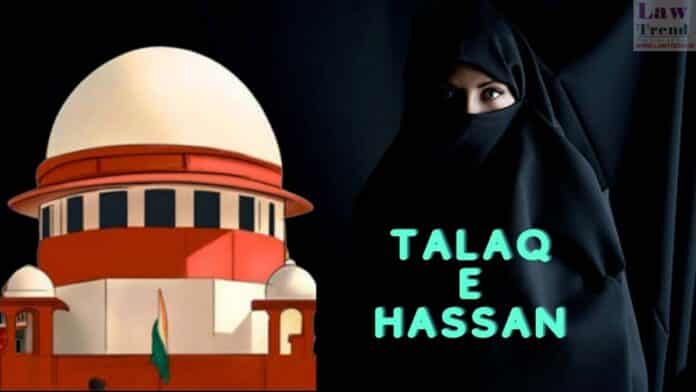The Supreme Court of India has strongly questioned the validity of Talaq-e-Hasan—a practice permitting a Muslim man to divorce his wife by pronouncing “talaq” once a month over three months—suggesting that such unilateral practices may not hold water in a modern constitutional democracy.
In a significant development on Wednesday, a three-judge bench comprising Justices Surya Kant, Ujjal Bhuyan, and N Kotiswar Singh indicated that the constitutional challenge to this practice might be referred to a five-judge Constitution Bench for an authoritative ruling.
“Society at Large is Involved”
Hearing a Public Interest Litigation (PIL) filed by journalist Benazeer Heena, the Court made trenchant oral observations regarding the dignity of women and the role of the judiciary in correcting discriminatory social practices.
Justice Surya Kant orally remarked that when a practice affects society at large, the Court is obligated to step in with remedial measures. “If there are gross discriminatory practices, then the court has to interfere,” Justice Kant stated.
Questioning the relevance of such practices in the modern era, the judge asked, “What kind of thing is this? How are you promoting this in 2025? Whatever best religious practice we follow, is this what you allow? Is this how a dignity of a woman be upheld? Should a civilised society allow this kind of practice?”
Potential Referral to Constitution Bench
The Bench has asked the parties involved to submit notes outlining the broad questions of law that arise in the matter. The Court clarified its intent to examine whether the issue requires a larger bench due to its legal complexity and societal impact.
“Once you give us a brief note we will consider the desirability of referring to a 5-judge bench… Then we will see how those are predominantly legal in nature that the court must resolve,” the Court observed.
The Petitioner’s Plight
The case stems from a petition by Benazeer Heena, who approached the Apex Court in 2022 seeking a declaration that Talaq-e-Hasan is unconstitutional, irrational, and arbitrary. She argued that the practice violates Articles 14, 15, 21, and 25 of the Constitution.
Heena alleged that her husband sent her a Talaq-e-Hasan notice through a lawyer after her family refused dowry demands, despite her facing harassment and physical abuse. She stated that the police had earlier refused to act on her complaints, citing the permissibility of the practice under Sharia law.
During the hearing, Heena’s counsel highlighted the real-world bureaucratic limbo the practice causes. The counsel submitted that while the husband has remarried, Heena is unable to prove her divorce status, leading to rejected school admission applications for her child.
“Everywhere I said I was a divorcee, my papers were not accorded. Admission was rejected. I told the father has moved on, married again. I don’t know the technicalities,” the counsel argued on her behalf.
Procedural Questions and Next Steps
Senior Advocate MR Shamshad, appearing for the husband, argued that appointing a person or lawyer to send a Talaq-e-Hasan notice is a well-known practice in Islam.
However, Justice Kant questioned why the husband could not communicate directly with his wife. “If talaq is to take place as per religious practice then the entire procedure has to be followed as it is prescribed,” the Court noted.
The Bench directed the husband to follow the prescribed practice for divorce and ordered him to be physically present before the Court for the next hearing, scheduled for next Wednesday.
Unheard Voices vs. Privilege
Significantly, Justice Kant noted the disparity between the petitioner, who as a journalist could access the highest court, and other women in similar situations. “Today we have a journalist before us. What about those unheard voices living in remote areas?” he remarked, underscoring the need for a judicial review that protects the vulnerable.
Background and Legal Context
The PIL argues that marriage and inheritance laws are not strictly part of personal codes and must evolve with time, citing the Supreme Court’s decision in Prakash and Others v. Phulavati & Ors. The petitioner has termed the practice “Unilateral Extra-Judicial Talaq,” arguing it is discriminatory as it is available only to men.
This stance contrasts with an observation made in August 2022 by a different Supreme Court bench (Justices Sanjay Kishan Kaul and MM Sundresh), which had opined that Talaq-e-Hasan was not prima facie improper. The current bench’s observations signal a potentially stricter judicial scrutiny of the practice moving forward.




